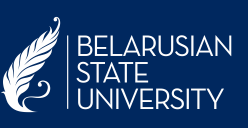
 |
Ïåäàãîãèêà èíôîðìàòèêè |
PEDAGOGY OF COMPUTER SCIENCE |
ISSN 2708-4124 |
|
DIGITAL EDUCATIONAL ENVIRONMENT OF SCHOOL AS A BASIS FOR FORMING DIGITAL LITERACY OF SCHOOL CHILDREN T. A. Boronenko, V. S. Fedotova FULL TEXT: PDF (Rus) Abstract The authors consider the main directions of digitalization of the educational environment of the school in the development of resources and the material and technical base of the organization, the formation of human resources, the preparation of software and educational resources. The educational effects of digitalization of the school learning environment are focused on increasing the motivation of schoolchildren to learn, the formation of their digital literacy and the development of digital competencies of the teacher.
Key words Digitalization, digital educational environment, digital literacy, digital competencies, digital technologies. Acknowledgments. The reported study was funded by RFBR, project number ¹ 19-29-14185 ìê. Received: 12/22/2020; accepted for publication: 12/30/2020. For citation: ________________________________________ Boronenko T.A, Fedotova V.S. Digital educational environment of schools as a basis for forming digital literacy of school children. Electronic scientific and methodological journal “Pedagogy of computer science”. 2021;1. Http://pcs.bsu.by/2021_1/2ru.pdf Content is available under license Creative Commons Attribution-NonCommercial-ShareAlike 4.0 International License. About the authors: T. A. Boronenko
V. S. Fedotova
References 1. Barahsanova E.A., Malgarov I.I. Schoolchildren in a digital educational environment: conditions, preferences, safety. Problems of modern pedagogical education. 2018; 61-2: 64-66. (In Russian) 2. Bokova L.N. Legal regime for creating a safe digital educational environment. RUDN Journal of Law. 2020; 24(2):274-292. (In Russian) 3. Efanov A.A., Budanova M.A, Judina E.N. The level of digital literacy of a student and a teacher: a comparative analysis. RUDN JournalofSociology. 2020; 20(2): 382-393. (In Russian). DOI: 10.22363/2313-2272-2020-20-2-382-393. 4. Boronenko T.A., Kajsina A.V., Fedotova V.S. Development of digital literacy of school-children in the context of creating a digital educational environment. Perspectives of Science and Education. 2019; 2(38): 167-193. (In Russian). DOI: 10.32744/pse.2019.2.14. 5. Soboleva E.V., Karavaev N.L. Cognitive factors of modeling personal educational trajectory in digital environments with the possibility of nonlinear presentation of information. Perspectives of Science and Education. 2019; 3(39):461-473. (In Russian). DOI: 10.32744/pse.2019.3.35. 6. Vezirov T.G., Rashidova Z.D. Digital educational environment as a condition for the training of bachelor-linguists. The world of science, culture and education. 2020; 1(80): 178-180. (In Russian). DOI: 10.24411/1991-5497-2020-00073. 7. Schmidt J.T., Tang M. Digitalization in Education: Challenges, Trends and Transformative Potential. Fuhren und Managen in der digitalen Transformation. Springer Gabler, Wiesbaden, 2020. pp. 287-312. 8. da Motta Reis J.S., Costa A.C.F., Espuny M., Batista W.J., Francisco F.E., Goncalves G.S., de Oliveira O.J. (2020). Education 4.0: Gaps Research Between School Formation and Technological Development. 17th International Conference on Information Technology–New Generations (ITNG 2020). Springer, Cham, 2020. pp. 415-420. 9. Bilalova D. N., Kireeva N. A., Levina T. M., Zharinov Y. A., Ujmanova I. P. Digital Educational Resources in the Study of Humanities Subjects in a Technical University. International Scientific Conference “Digitalization of Education: History, Trends and Prospects” (DETP 2020). Atlantis Press, 2020. pp. 320-324. 10. Ugur N.G. Digitalization in Higher Education: A Qualitative Approach. International Journal of Technology in Education and Science. 2020; 4(1):18-25. |